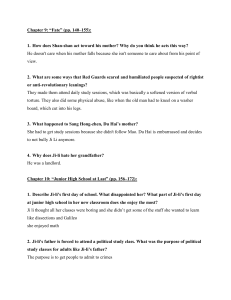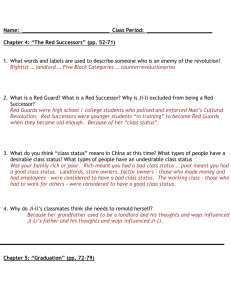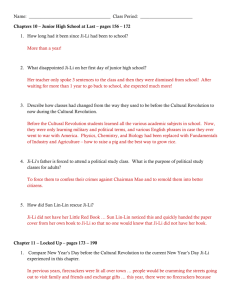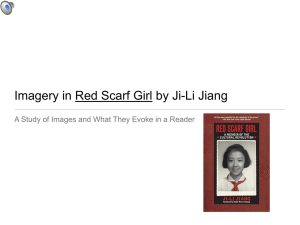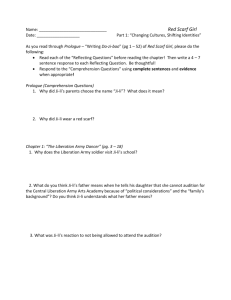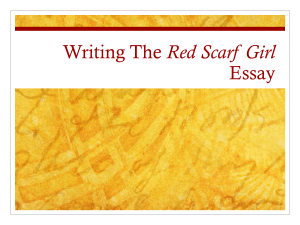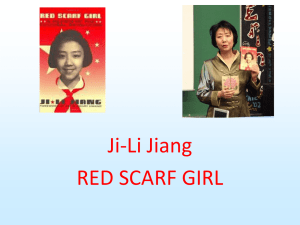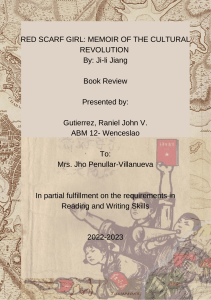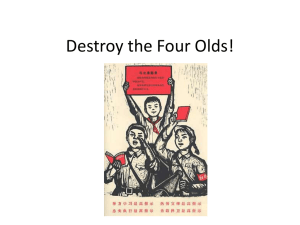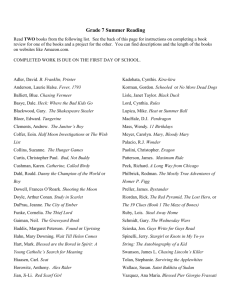Red Scarf Girl Study Guide
advertisement
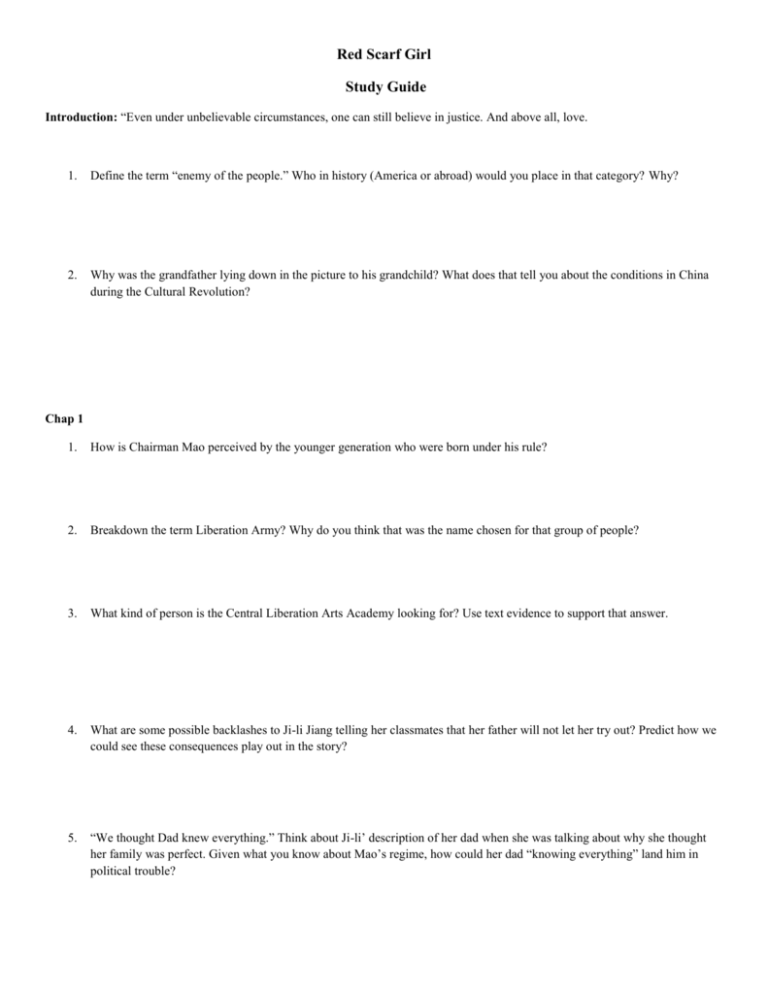
Red Scarf Girl Study Guide Introduction: “Even under unbelievable circumstances, one can still believe in justice. And above all, love. 1. Define the term “enemy of the people.” Who in history (America or abroad) would you place in that category? Why? 2. Why was the grandfather lying down in the picture to his grandchild? What does that tell you about the conditions in China during the Cultural Revolution? Chap 1 1. How is Chairman Mao perceived by the younger generation who were born under his rule? 2. Breakdown the term Liberation Army? Why do you think that was the name chosen for that group of people? 3. What kind of person is the Central Liberation Arts Academy looking for? Use text evidence to support that answer. 4. What are some possible backlashes to Ji-li Jiang telling her classmates that her father will not let her try out? Predict how we could see these consequences play out in the story? 5. “We thought Dad knew everything.” Think about Ji-li’ description of her dad when she was talking about why she thought her family was perfect. Given what you know about Mao’s regime, how could her dad “knowing everything” land him in political trouble? 6. Why does Ji-li tell the story of little white hiding in the attic for days? What point is she trying to make? 7. What did the bubbles represent for Ji-li? How do you know this is true? 8. List some things you see in Chinese culture that are not prevalent in American culture. Chap 2 1. At the beginning of the chapter, what act(s) represents the desecration of the Four Olds? 2. Why do the children believe it is important to destroy the Four Olds? What was the new battle trying to save? 3. Where do you think Ji-li’s parents and grandmother’s lack of excitement stem from? 4. How is the new battle different from all of China’s previous battles? Explain how have seen the revolutionaries fight these battles. 5. What is the purpose if having student inspectors? 6. What emotion do you think the student inspector’s display in front of the crowd evoked in people? How is that emotion good or bad? 7. Describe old Chinese beliefs. How do they conflict with the revolution? 8. List 2-3 acts that were considered “Four Olds.” Do you think it is Mao’s intention to have the students behave like this toward each other? What problems do you think this may cause? Chap 3 1. What is a da-zi-bao? 2. What do the students have to do to be a “good young socialist?” 3. Give an example of someone manipulating the new system to their advantage. 4. What was Aunt Xi-wen’s reaction to the students outside her door? Why did she react that way? 5. At the end of the chapter, why was Ji-li crying? How will this event effect her future actions? Chapter 4: 1. Who are the Red Successors? How did they come to be? 2. How does Ji-li feel about being nominated as a Red Successor? Support your answer with evidence from the text. 3. What is class status and why is it important in the Red Successor election? 4. How were Ji-li’s father and grandfather worse than criminals and counter revolutionists? 5. Based on what you know so far about class status and the requirements for being a good socialist, would you have made a good nominee for the Red Successors? Why or Why not? 6. What is Ji-li’s true class status? 7. Cause and Effect: Cause A. Ji-li calling Deng Yi-yi “Pauper.” Effect B. Ji-li’s rebuttle that she had nothing to do with her grandfather. And she doesn’t need to remold her thinking. C. 8. “All things are subject to interpretation whichever interpretation prevails at a given time is a function of power and not truth.” - Friedrich Nietzsche Relate this quote to the conversation the Red Successors had with Ji-li after school.
